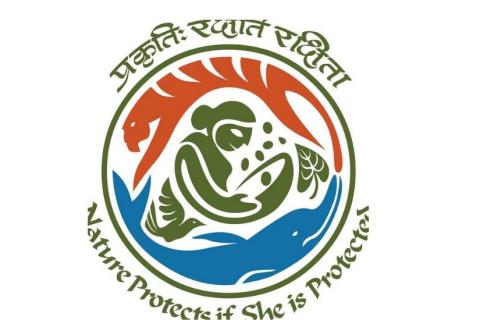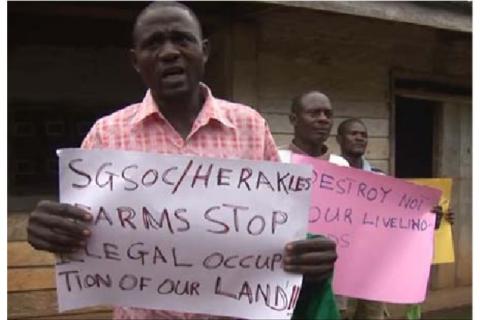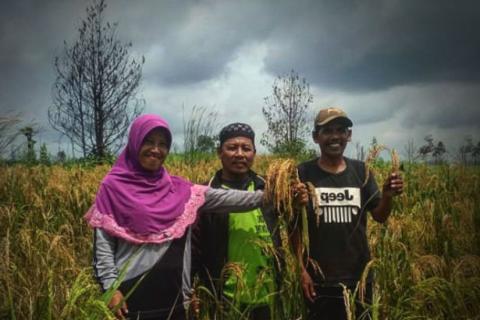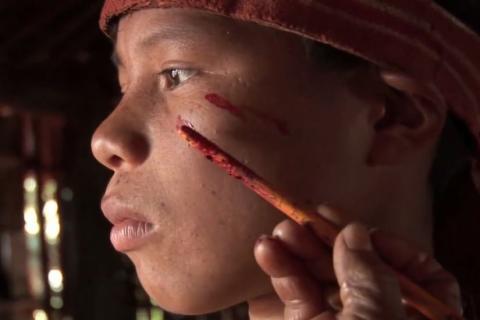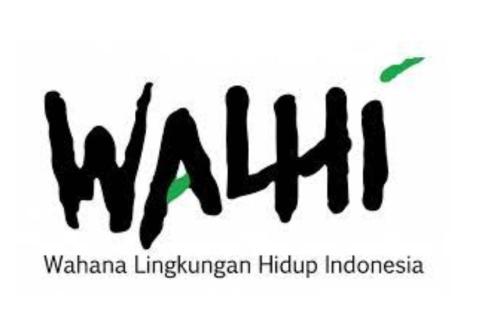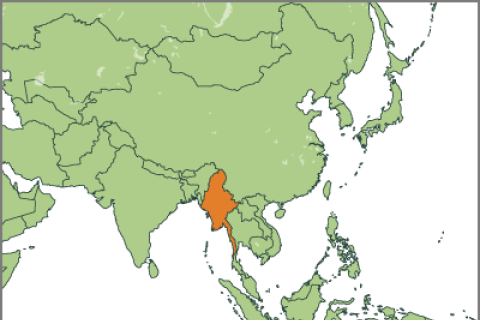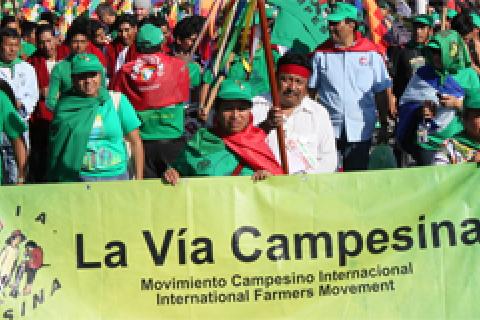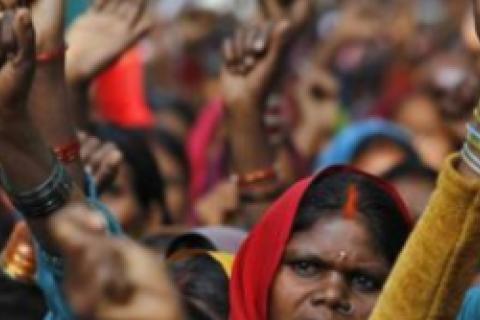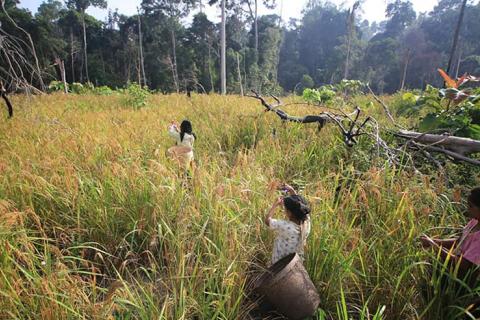A story of the peoples of the Atlantic Forest in southern Brazil in a disputed territory where the green economy competes with community-based economies.
Bulletin articles
This month, while another meeting of the Conference of Parties to the Convention on Biological Diversity was taking place in India, we also celebrated, on October 16, World Food Sovereignty Day.
The 11th meeting of the Conference of Parties (COP 11) to the Convention on Biological Diversity (CBD) took place October 8-19 in Hyderabad, India. Among the main themes addressed was the search for means to implement the Aichi Targets and the Nagoya Protocol on Access and Benefit Sharing, which were adopted in 2010 at COP 10 to serve as the new roadmaps to guide countries in the measures to be taken to halt biodiversity loss by the year 2020, since the 2010 target had already failed to be met. (1)
About 40 farmers of a La Via Campesina member organization (Serikat Petani Indonesia) from Jambi province protested in front of the Germany Embassy on October 16 against the negative impacts of a Debt Nature Swap (DNS), signed in 2007 between the German Government and Indonesian authorities. The objective of the agreement to protect tropical forests in Sumatra led in practice to the eviction, burning of houses and arresting of farmers who have lived long in the area.
Source: http://www.metrojambi.com/v1/metro/11013-puluhan-petani-merangin-demo-kedutaan-jerman.html
The Brazilian organizations Juízes para a Democracia (Judges for Democracy) and CIMI have launched a petition addressed to various Brazilian authorities to demand the urgent demarcation of indigenous lands in the country, particularly in view of the disastrous situation faced by the Guaraní-Kaiowá people in the state of Mato Grosso do Sul. The Guaraní-Kaiowá who live in the PyleitoKue/Mbarakay territory announced that they would rather die en masse than leave their territory in reponse to an eviction order and threats.
The state administrative High Court in Medan, has decided in favor of the organization WALHI, cancelling administrative decisions that led to the issuance of the license to the oil palm plantation PT Kalista Alam for an area of around 1,605 hectares in the Rawa Tripa peat swamp forest, Nagan Raya District, Aceh.
The "Second Commercial Farm Asia", a fair that brings together corporate investors and governments from Myanmar and other countries in the Southeast Asia, has taken place in Yangon, Myanmar on 11-12 October. The event was to discuss how industrial agricultural and extractive investments can be expanded and facilitated.
The struggle in Geragai District
Up to 2011, a total of 18 companies had licenses over forest areas for a total of 663,809 ha distributed over 8 Regencies in Jambi Province, Sumatra, nearly 50% of which - 293,812 ha - is being controlled by one large corporation, PT. WiraKaryaSakti (PT. WKS), a subsidiary of Sinar Mas Group. The concession land of PT. WKS is divided in 5 Regencies, namely Tebo Regency, Batanghari Regency, Muaro Jambi Regency, TanjungJabung Barat Regency, and TanjungJabungTimur Regency.
This past September 21, to mark the International Day Against Monoculture Tree Plantations, the Portuguese environmental organizations Liga para a Protecção da Natureza (League for the Protection of Nature) and Quercus launched a petition against a proposed new regime for tree planting and replanting presented by the government.


